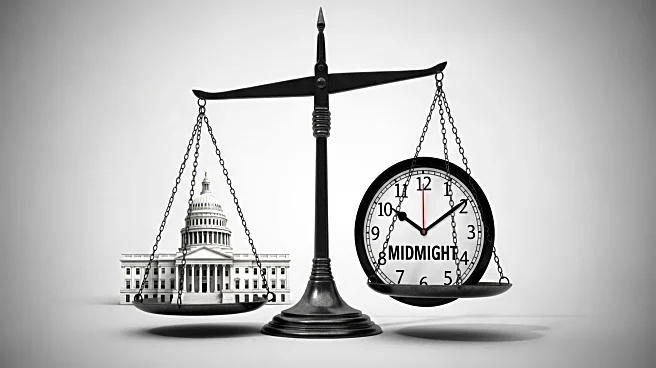What's Happening?
The U.S. Senate has failed once again to pass either party's preferred spending plan, prolonging the government shutdown into its second day. The deadlock in Congress has resulted in significant disruptions to federal operations, with thousands of workers facing furloughs and potential layoffs. The inability to reach a consensus on budgetary issues highlights ongoing political divisions and the challenges in achieving bipartisan agreements. The shutdown continues to affect various federal agencies and services, impacting public welfare and safety.
Why It's Important?
The Senate's failure to pass a spending plan has far-reaching consequences for U.S. politics and the economy. The shutdown affects federal workers, contractors, and essential services, leading to financial strain and uncertainty. The political impasse reflects deeper divisions within Congress, potentially influencing public trust and upcoming elections. Industries reliant on government contracts may experience delays and financial losses, further impacting economic stability. The situation underscores the need for effective negotiation and compromise in addressing fiscal policies.
What's Next?
Continued deadlock in Congress could extend the shutdown, increasing its impact on federal workers and services. Political leaders may face heightened pressure to negotiate and reach a compromise to end the shutdown. Public protests and advocacy from affected groups could influence the legislative process. The resolution of the shutdown will depend on bipartisan efforts to address budgetary disagreements and prioritize essential government functions.









